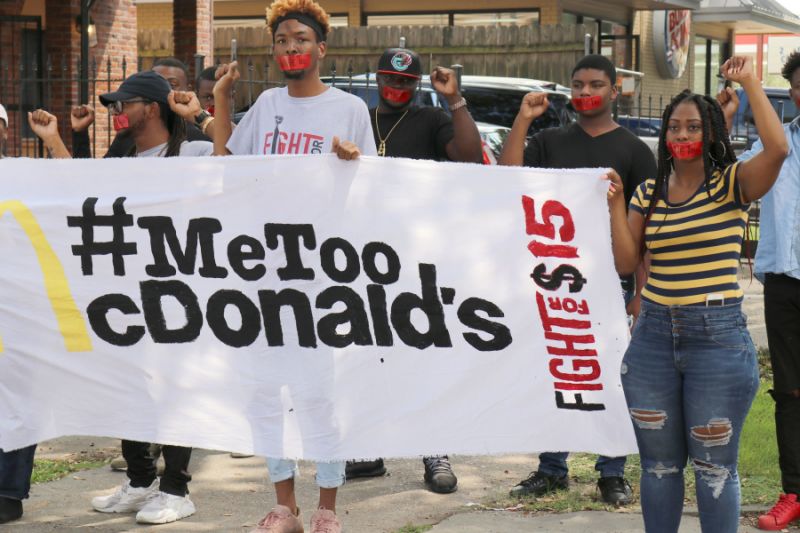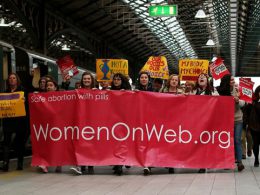By Harper Cleves
The #MeToo movement has gained traction globally since October 2017 following the allegations made by prominent Hollywood actors against media mogul Harvey Weinstein. In the wake of these accusations, actor Alyssa Milano posted a tweet calling on fellow survivors to post ‘me too’ in solidarity. Within 12 hours she had half a million replies.
Furthermore, by the end of the year, a report released by Facebook revealed that 45% of users in the United States had a friend who posted using the me too hashtag. Seemingly overnight, what started as a conversation between elites had trickled down into the lives of ordinary people, revealing the prevalence of the problem.
“McStrikes” in the US
The McDonald’s strike in the United States this past September illuminates the ways in which the consciousness generated by #Metoo has affected workers across different sectors. This strike marked the first ever action aimed specifically at highlighting sexual assault in the workplace, and it was led primarily by working class women of colour. McDonald’s workers staged lunchtime walk-outs in ten major US cities.
They highlighted systemic issues and made demands to that end, calling for structural changes in the reporting process and the creation of committees that included restaurant workers to address these problems. The mobilisation of worker power proved effective. In the end McDonald’s responded, agreeing to work with ‘Rape, Abuse and Incest National Network (RAINN) and the legal-compliance firm Seyfarth Shaw at Work’ in order to address worker demands.
The need to organise
In Ireland similar approaches must be taken by trade unions in order to address workplace sexual assault. Irish women and LGBTQ people are done accepting abuse. This was made evident following both the repeal referendum and the spontaneous #IBelieveHer demonstrations of support that arose just following the Belfast rugby rape trial. Workplace sexual harassment is no exception.
Sexism permeates workplaces not only through management structures, but also through the power it affords customers in social relation. Sexual harassment under these conditions stems from the same profit-driven inhumanity that favours zero-hour contracts and unlivable wages. It is vital that the trade union movement take up this issue.
Growing potential
The interest and human potential for such strike action is there. 32% of women in the Republic are union members. Furthermore, membership on the island is generally high, with density hovering between 29 and 35% depending on the source. The repeal and water charges campaigns proved to young people and workers that concentrated and organised pressure placed on the establishment can lead to systemic gains.
This can be seen recently in Belfast, where the staff at a pizza parlour called “Pizza Punks” all handed in their resignations effective immediately if an abusive manager was not removed. This was after attempting to report through official structures. The management caved. Trade union leadership must follow suit, uniting workers in actions against all forms of sexism and sexual harassment in the workplace.












